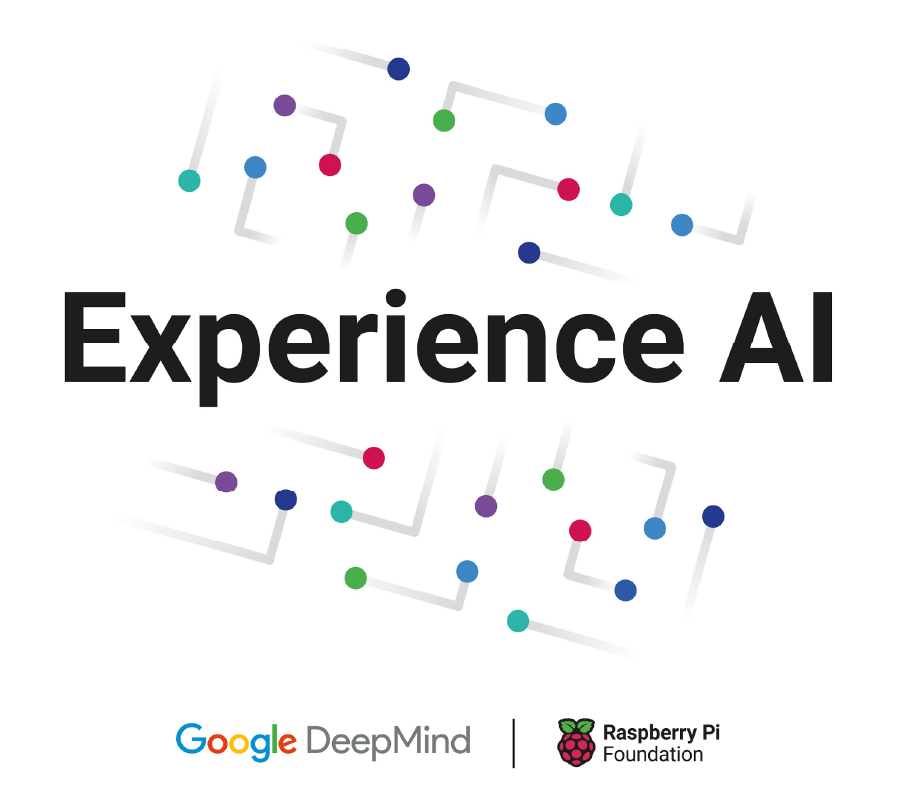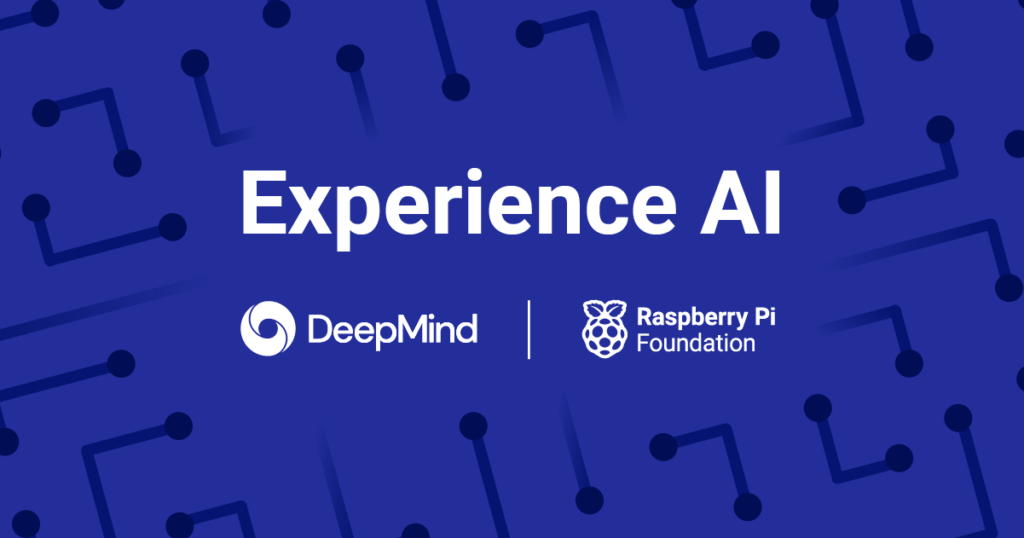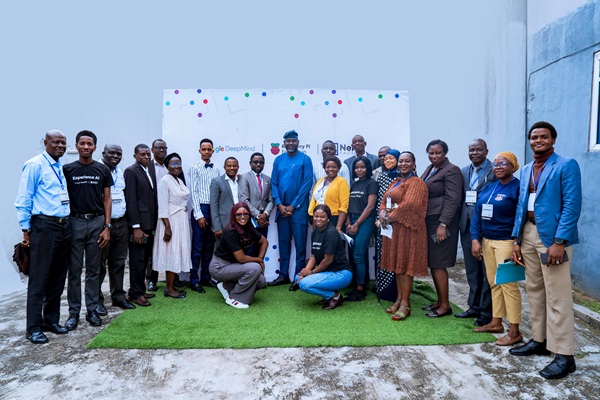In a bold step toward future-ready education, Experience AI, a pioneering initiative spearheaded by NerdzFactory in partnership with the Raspberry Pi Foundation and Google DeepMind, has launched an ambitious programme to equip 3,150 secondary school teachers in Nigeria with foundational artificial intelligence (AI) skills. Rolling out across five states—Lagos, Ogun, Oyo, Ondo, and Ekiti—the scheme aims to impact over 157,000 students by 2026.
Table of Contents
Why It Matters
As AI revolutionises industries worldwide, preparing educators becomes pivotal—not just for teaching AI but for inspiring students to harness its power responsibly. The Experience AI programme moves beyond theory, focusing on hands-on learning, ethical awareness, and addressing local educational challenges.
A Holistic, Blended Learning Approach
To ensure broad reach and practical engagement, the programme follows a blended model:
- 70% delivered online: Live sessions and digital learning support accessibility.
- 30% in-person workshops: Particularly targeting rural or connectivity-challenged regions.
Running in tandem with Nigeria’s academic calendar, the training concludes in December 2026 and is tailored to benefit public schools in underserved communities.

Leading With Purpose and Global Standards
Ade Olowojoba, Founding Partner at NerdzFactory, emphasises the programme’s mission: “The Experience AI programme aims to equip teachers to inspire innovation, build confidence, and unlock AI’s potential in every classroom.”
Katherine Leadbetter, Global Partnerships Manager at the Raspberry Pi Foundation, highlights that the curriculum aligns with UNESCO’s AI competency framework and is co-designed with Google DeepMind to boost its global relevance.
A Powerful Partnership
- NerdzFactory drives implementation, working closely with state education ministries to reach public schools.
- Raspberry Pi Foundation lends its expertise in computing education and partnerships.
- Google DeepMind supports curriculum design and digital delivery, reinforcing foundational AI education.
Nigerian governments have backed the project, offering access to AI specialists and policy support, highlighting AI’s application in fields like agriculture and public safety.
Real-World Impact in the Classroom
By putting AI in teachers’ hands—and their students’ minds—the programme seeks to:
- Promote innovation: Encourage problem-solving and entrepreneurship.
- Build digital confidence: Equipping educators to integrate AI tools.
- Improve equity: Empowering under-resourced schools and communities.
The projected reach—157,000 students by 2026 marks a significant investment in Nigeria’s future workforce.
Scaling National Vision
The initiative aligns perfectly with Nigeria’s broader national strategy:
- It supports the National AI Strategy and aligns with the ₦2.8 billion commitment by the Ministry of Communications, Innovation & Digital Economy.
- Independent analysis, such as from Public First, estimates AI could contribute $15 billion to Nigeria’s economy by 2030, solidifying AI education’s economic rationale.
What Educators Can Expect
- Engagement with an international curriculum
The course includes lesson plans and interactive activities, helping teachers grasp key AI and machine-learning ideas. - Blended delivery to suit local needs
Live online training paired with in-person support ensures adaptability across varied school environments. - Continuous teacher support
Regular check-ins and updates from NerdzFactory foster long-term engagement and growth.

Broader Trends in AI Education
This Nigerian initiative reflects a global shift toward equipping educators with AI skills:
- In the U.S., the American Federation of Teachers (AFT) is collaborating with Microsoft, OpenAI, and Anthropic on a $23 million National Academy for AI Instruction. This aims to train 400,000 teachers by 2030; a flagship hub in New York City is already planned for fall 2025.
- Similarly, South Korean tech companies are integrating AI tools into public education, streamlining classroom administration and personalising learning.
The global pattern is clear: AI literacy for teachers is becoming a cornerstone of modern education policy.
Balancing Promise with Prudence
While the benefits are promising—personalised learning and reduced administrative burden—there are valid concerns:
- Ethical bias: Ensuring AI tools don’t reinforce stereotypes.
- Data privacy: Protecting students’ information.
- Equity gaps: Making sure high-poverty and rural schools gain access, not just urban centres.
By training teachers first, Experience AI places educators in control, steering AI’s use in classrooms responsibly, not leaving it to external forces. It embeds local context and needs into its framework.
A Glimpse at the Future
Research shows that AI can enhance educational equity when embedded in structured programmes:
- Nottingham’s Tutor CoPilot study improved mastery by 4% and lifted outcomes even further for lower-performing tutors.
- MIT’s RAICA curriculum revealed that AI training deepens teachers’ ethical awareness and enriches understanding, not just technical literacy.
With that foundation, Experience AI stands to:
- Empower teachers to create AI-driven projects tailored to local needs—imagine apps that help farmers, or chatbots aiding literacy programmes.
- Develop long-term capacity within education systems—NerdzFactory’s graduates could become local AI champions and mentors.
What Comes Next?
- How teachers apply what they learn—classroom rollouts and student outcomes—will define the programme’s success.
- Long-term support is vital: ongoing resources, community building, and curriculum updates will sustain momentum.
- Measurement frameworks should track impact: student engagement, test scores, and teacher confidence must be monitored.

Final Word
The Experience AI teacher training Nigeria programme is more than a one-off initiative—it’s a strategic investment in capacity, equity, and national AI readiness. Economically empowering teachers across regions often left behind—it builds a resilient, innovative educational ecosystem capable of harnessing AI for positive, locally-driven impact.
With high-level backing, local partnerships, and a clear vision, Experience AI is well-positioned to become a model for AI-infused education across Africa and beyond.
Summary Table
| Feature | Details |
|---|---|
| Programme Name | Experience AI |
| Target Participants | 3,150 secondary teachers |
| Manifold Reach | 157,000+ students by 2026 |
| Geographic Scope | Lagos, Ogun, Oyo, Ondo, Ekiti |
| Delivery Mode | 70% online, 30% in-person |
| Run Time | Now through Dec 2026 |
| Core Partners | NerdzFactory, Raspberry Pi, Google DeepMind |
| Curriculum Foundation | UNESCO AI competency framework |
| State Ministry Support | Technical, logistical, policy |
| Broader Context | Aligns with Nigeria’s AI National Strategy and global trends |
By prioritising teacher empowerment, Experience AI sets a new standard for meaningful, context-rich AI education. As nations worldwide race to prepare their citizens for a rapidly changing digital future, Nigeria’s model offers a thoughtful, inclusive blueprint. The journey has begun—and it starts with the educators who will shape tomorrow’s innovators.
Join our WhatsApp community
Join Our Social Media Channels:
WhatsApp: NaijaEyes
Facebook: NaijaEyes
Twitter: NaijaEyes
Instagram: NaijaEyes
TikTok: NaijaEyes








































